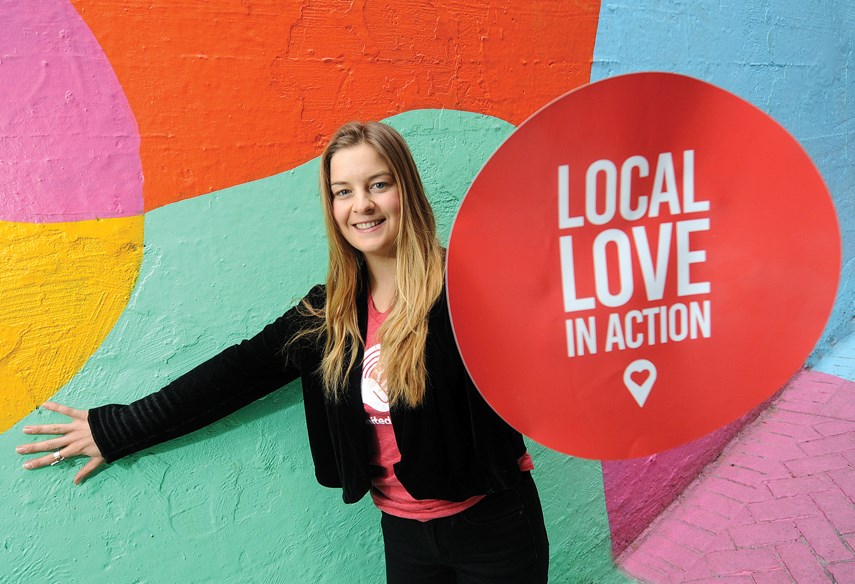How do you turn a bunch of apartment buildings and high-rises into a real community?
The United Way is here to help North Vancouver’s Lower Lonsdale residents answer that question. This week the non-profit organization launched a new program to help residents make their community feel a bit closer. The United Way is making $12,000 available for projects designed by Lower Lonsdale residents to help foster more “local love” in the community. Residents can apply in two categories: Small Spark funds of up to $250 for community projects such as a block party or neighbourhood cleanup; and bigger, bolder ideas to transform the neighbourhood with up to $1,000 in funding.
The goal of the project is to combat social isolation, to make residents feel as if they have a shared identity with their neighbours that goes beyond simply having the same postal code.
“We know people are feeling less connected, and we want to foster that sense of community and sense of belonging, and that people are here for each other and know each other beyond just a casual ‘hello,’” said Ivy Staker, a community engagement specialist with United Way of the Lower Mainland.
Lower Lonsdale is the second location to host such a project, following a similar initiative recently created in Surrey’s Clayton Heights neighbourhood. The United Way plans to add several more neighbourhoods across the Lower Mainland soon. There are several factors that make Lower Lonsdale an excellent choice for the project, said Staker. Their research indicates that there are a lot of low-income seniors living in the area who feel quite isolated. There are also “cultural silos,” people who have moved here from other parts of the world who are having trouble getting to know people outside of their own cultural group.
“They are saying ‘Hey, my English is getting worse since I moved here because I have no opportunities to talk to other people who speak English,’” said Staker, adding that a lack of after school programs may also leave children in the area feeling disconnected from their neighbourhood. Rapid changes to the neighbourhood can also contribute to the feeling of social isolation.
“Change is hard for people,” she said. “Lonsdale used to be this tighter, more industrial community and people knew each other. When there is an influx of new people and we’re living in these tall buildings, we’re not as easily connected to each other. That impacts a lot of apartment dwellers in Lower Lonsdale as well. Unless you’re strategic about connecting with people in your building, it doesn’t always happen naturally.”
The United Way has already started to receive some applications, including one woman who is working to turn the dead space around her apartment into a community garden, and another who wants to start a group for new arrivals to the country who want to combat a feeling of homesickness. United Way will provide not just funding but also staff support for projects, although it’s crucial that the ideas come from community members, not from the program’s organizers, said Staker.
“We want to see people fired up about asking themselves, ‘What can I do for my community?’” she said. “We often turn to what the city can do, and what the city should be doing, but we want to empower people to say ‘What can I do for my community?’ and then support them with tools and funding to do those things. … We need really solid services and programs, but we also need people who care about their community and want to take some action and put a little bit of effort into making this place awesome.”
The program is aided by a $50,000 donation from North Vancouver’s Neptune Terminals. The application process is very simple and flexible, said Staker.
“If people have just a fledgling of an idea and they’re not ready to write a full application, that’s totally cool. They can email me and we can sit down and have a coffee and we can chat about how to flush that idea out, what support they need. … It’s all about co-creating with residents, collaborating. You’re not on your own.”
Anyone interested in learning more about the program can visit the United Way Lower Mainland website, or email Staker at [email protected].



